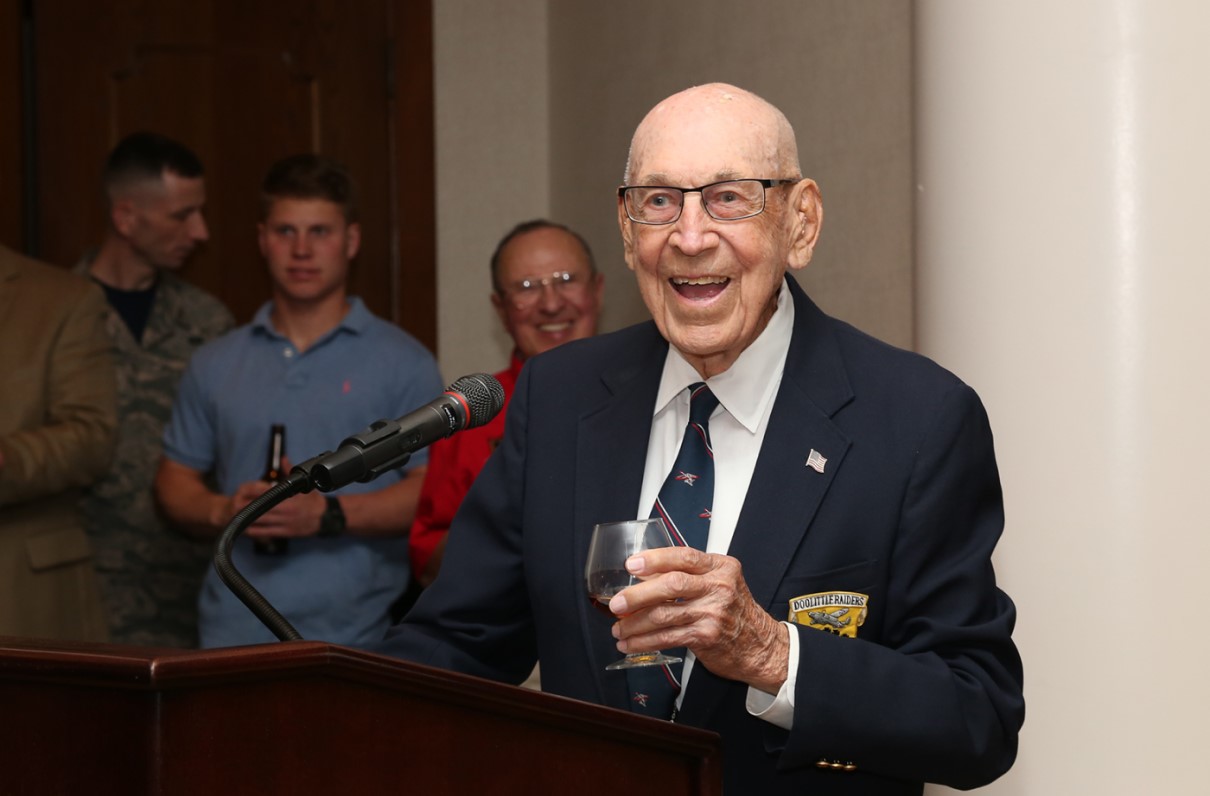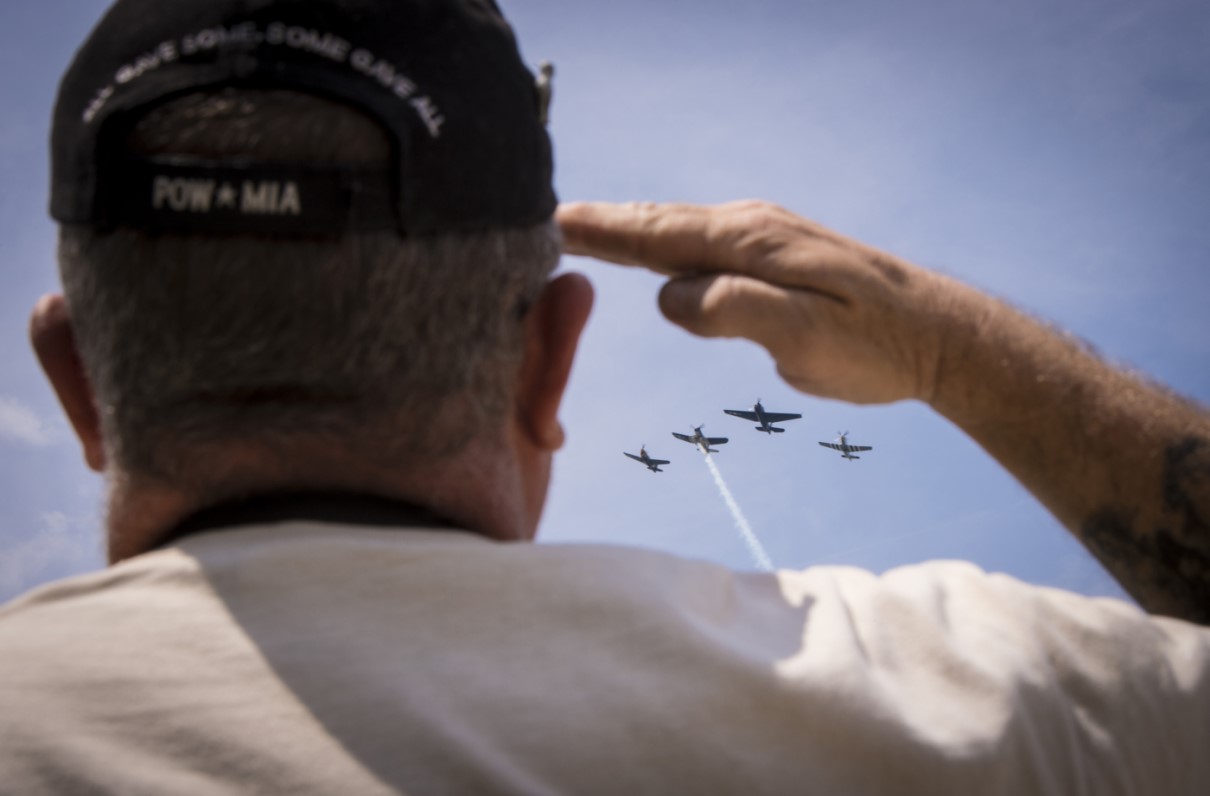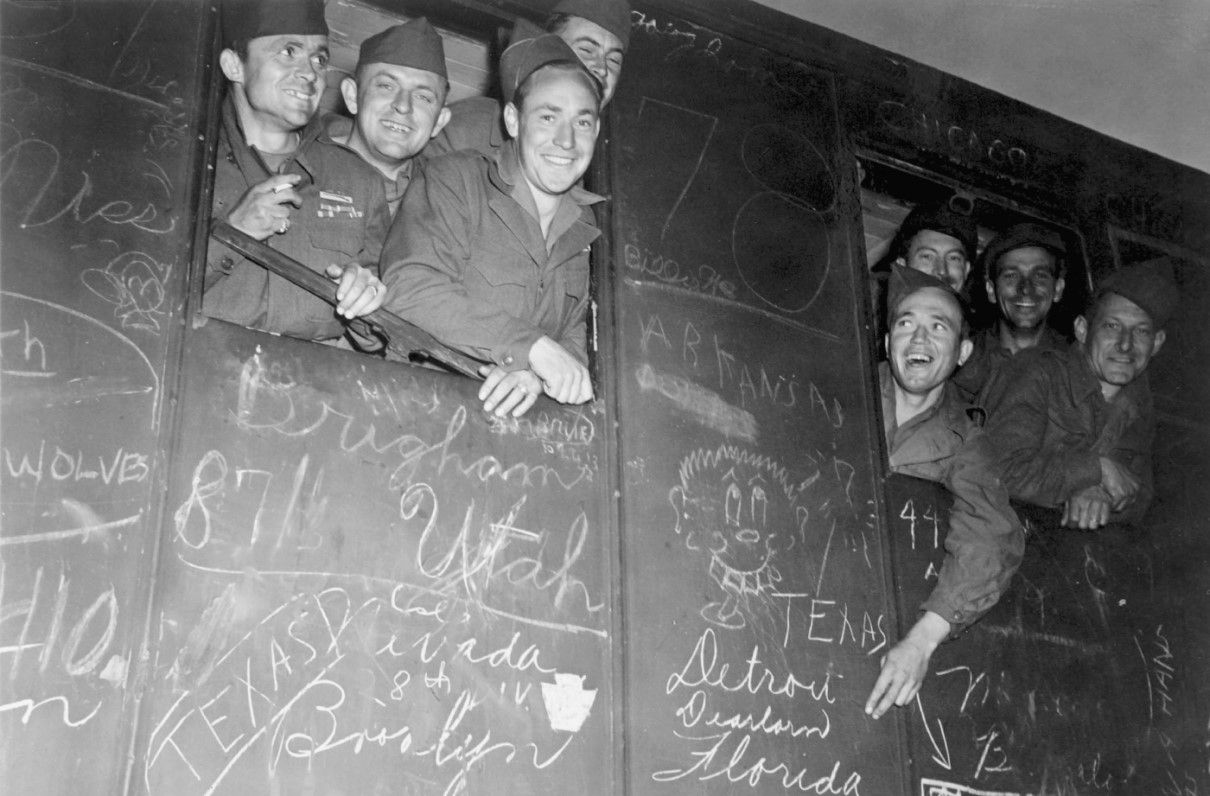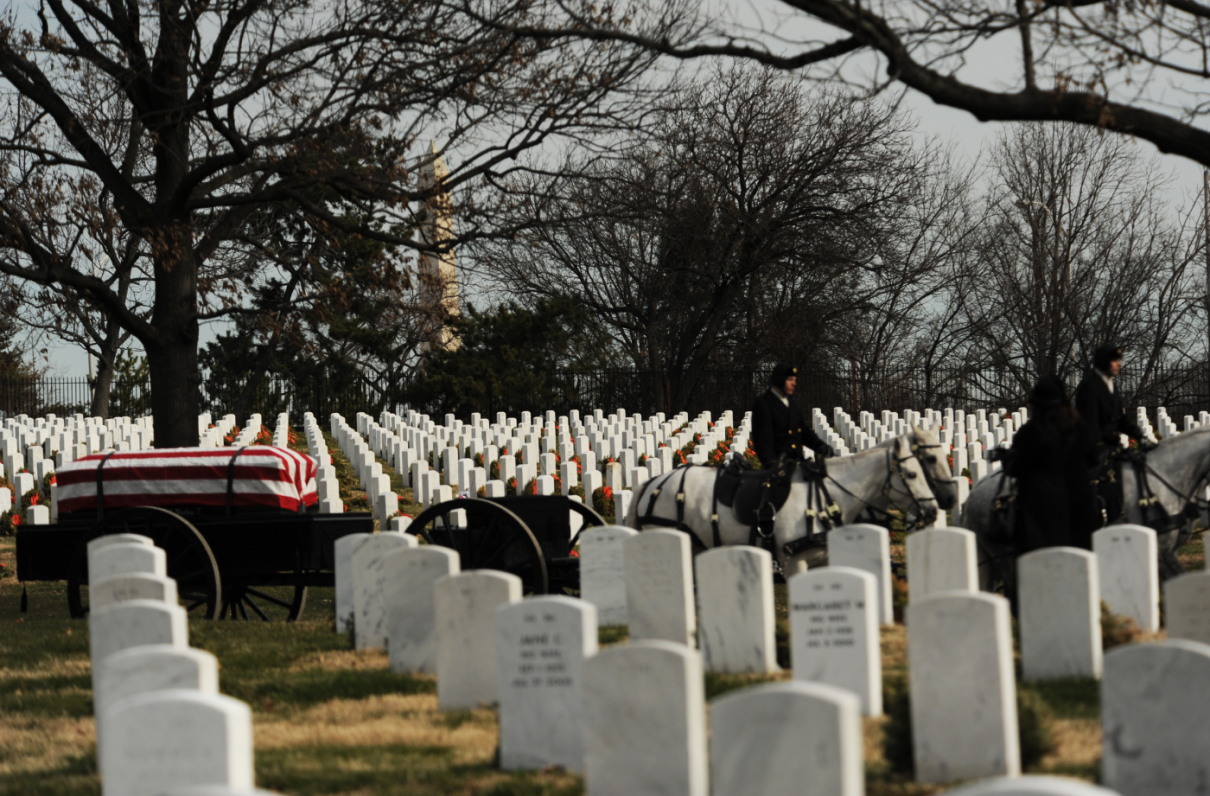By MOAA Staff
Richard Cole, who served as Lt. Col. James “Jimmy” Doolittle's copilot on the famed 1942 Tokyo Raid and was the last surviving member of the Doolittle Raiders, died Tuesday in San Antonio, according to multiple media reports. He was 103.
Cole, a Life Member of MOAA, retired from the Air Force as a lieutenant colonel. He joined the Army Air Corps in 1940 and was in Augusta, Ga., for a training exercise when he heard the news that the Japanese had bombed Pearl Harbor, Cole said in a 2016 interview with Military History magazine.
Later, he volunteered for what would become known as the Tokyo Raid, in which 80 men flew 16 modified B-25 bombers off the USS Hornet (CV-8) in the Pacific Ocean toward the island of Japan.
“The raid was designed for two reasons,” Cole told Gary Sinise at the National WWII Museum in New Orleans, during an interviewthat was part of a 2017 PBS Memorial Day special. “One was to prove to the Japanese that their island could be struck by air, and to prove to the Japanese people that their higher-ups weren't being truthful.
“The other reason was to be a morale booster to the United States and the Allies. We did that, and we were proud of that.”
[RELATED: 100 Veterans, 100 Years: The Doolittle Raid]
How secret was the mission? Cole said he found out where he was heading from an announcement over the public address system after two days at sea: “This force is bound for Tokyo.”
“We knew we were going to take off from the carrier,” he told Sinise of the April 1942 mission. “Most of us thought that we were going to be taken to some island that they had selected, and we take off and go to it and start fighting the war.”
Cole bailed out from his B-25 and landed in a pine tree, where he spent the night. He walked to a Chinese village and eventually would reunite with the rest of his crew; 15 of the 16 aircraft crash-landed in China, while the other landed in what was then the Soviet Union.
"The raid showed American resolve in the face of aggression, a willingness to take on a dangerous mission despite the odds,” said Lt. Gen. Dana T. Atkins, USAF (Ret), MOAA's President and CEO. “The actions of Lt. Col. Cole and others inspired a great generation to victory, and will continue to be held as an example of bravery and patriotism for countless servicemembers - past, present, and future. all of us at MOAA celebrate his life and offer our support and prayers to his family."
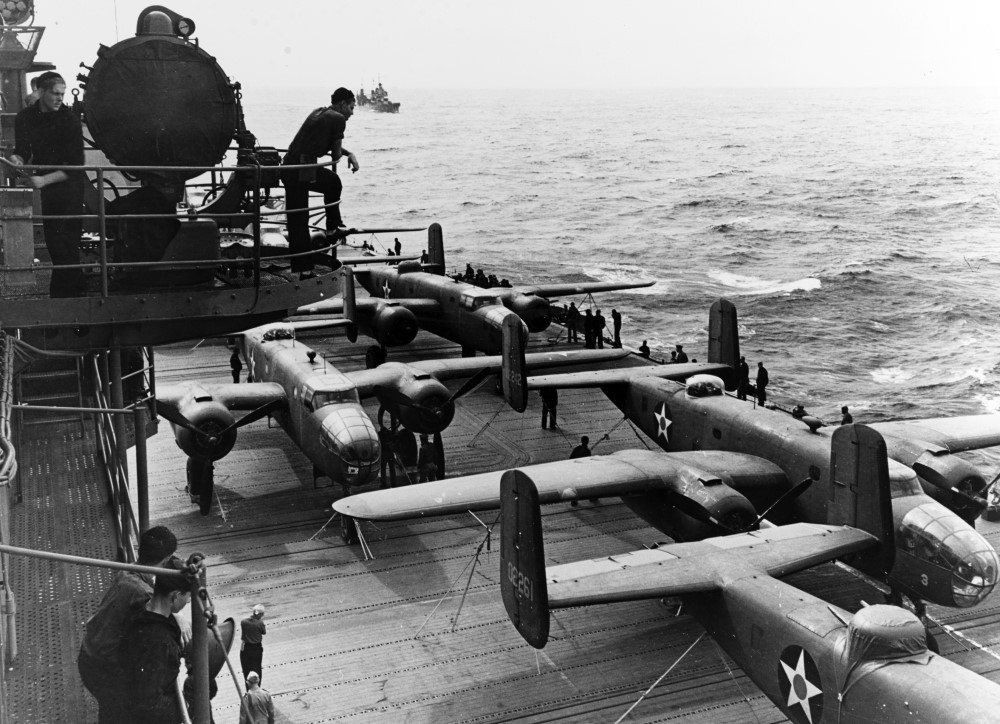
B-25 bombers rest on the deck of the USS Hornet (CV-9) in April 1942. The planes were being prepared for what would become known as the Doolittle Raid. (Navy/Interim Archives/Getty Images)
Cole received the Distinguished Flying Cross for his efforts, joining 79 others who “volunteered for this mission knowing full well that the chances of survival were extremely remote,” according to his award citation.
He later served in the China-Burma-India theater, working with British special operators and becoming one of the original Air Commandos, part of yet another secret force: “Project 9.”
Cole left service shortly after the war, he said in a National WWII Museum interview, then was recalled to active duty in 1947 and served into the late 1960s.
He remained active as a centenarian, attending a commemoration ceremony at Hurlburt Field, Fla., in March marking 75 years since Operation Thursday, an Allied operation over Burma in 1944 that's considered a pioneering effort in air invasion, air support, and combat rescue.
Like many veterans of his era, Cole hadn't been eager to speak about his service.
“I never wanted to be a blabbermouth,” he said in “Dick Cole's War: Doolittle Raider, Hump Pilot, Air Commando” by Dennis R. Okerstrom. “For all I knew, if I'd been talking about things I'd done in the war, the guy I was talking to would turn out to be a Medal of Honor winner.”
Cole's memorial service will take place April 18 at Randolph Air Force Base, Texas, according to the Air Force - exactly 77 years after the Tokyo Raid.
